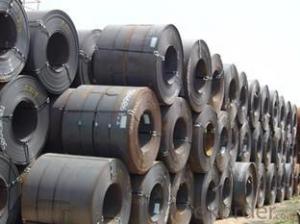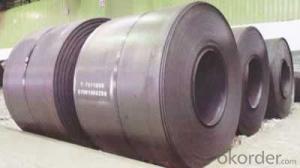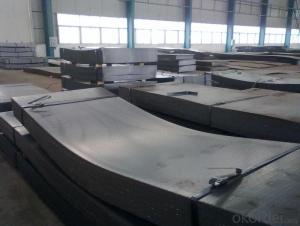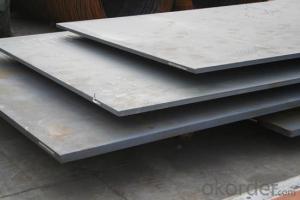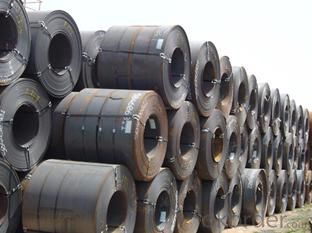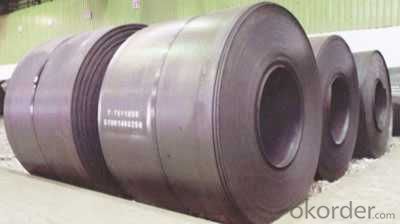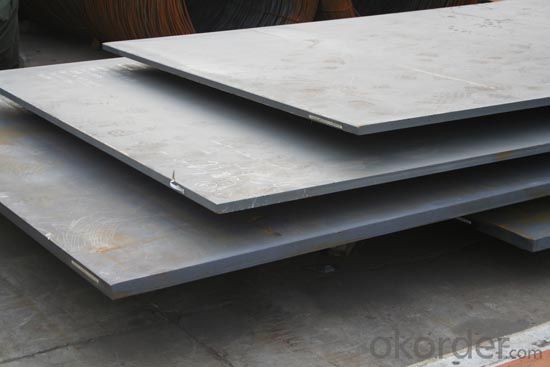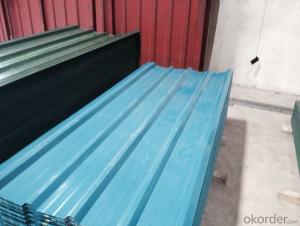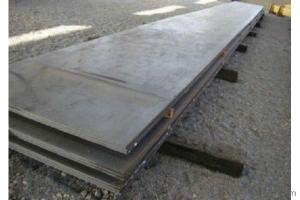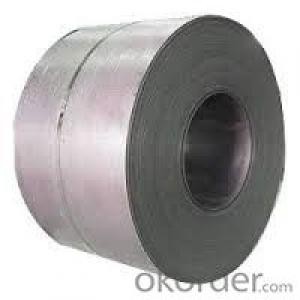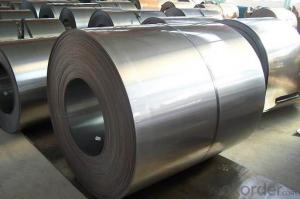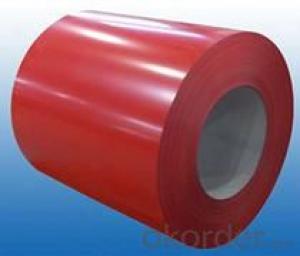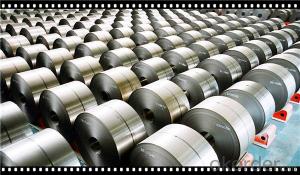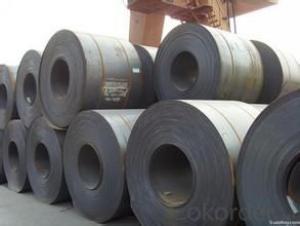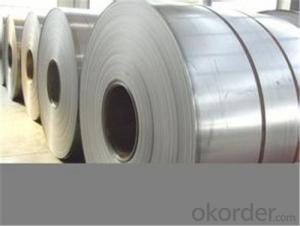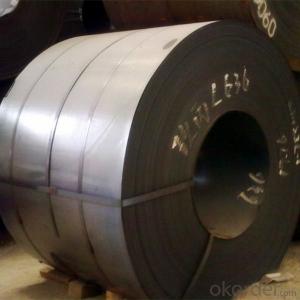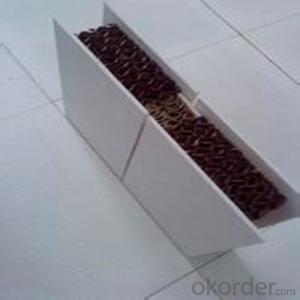Prime quantity Hot Rolled Steel Coils/Sheets, CNBM
- Loading Port:
- China main port
- Payment Terms:
- TT OR LC
- Min Order Qty:
- 1 m.t.
- Supply Capability:
- 100000 m.t./month
OKorder Service Pledge
OKorder Financial Service
You Might Also Like
Specificationshot rolled steel plate
Grade:S235jr S275jr S355jr SS400 A36
Size:1.8 -100x1000 -3000x2000mm
BV approved
Quality Assuranc
A36 Hot Rolled Steel Plates
Carbon Steel Plate
Grade: S235jr S275jr S355jr SS400 Q235 Q345 ASTM A36
Thickness:1.8-100mm
Width:1000-2500mm
Length: 2000-12000mm as request
Mill: qualified steel mill in China
Bundle weight: max 4mt or as request
Package: seaworthy packing ( bared with steel strips )
Payment: L/C,T/T
Shipment: within two months, immediate shipment for stock
Product: | Hot Rolled Steel Coils/Sheets |
Material: | Q195,Q235,A36,SS400,S235JR,Q345,ST37-2, CCSB etc |
Standard : | JIS G3002 GB/T251B |
Technique: | hot rolled |
Thickness | 1.2mm to 200mm |
Tolerance of thickness: | :+/-0.03mm |
Width: | 750mm-2000mm |
Tolerance of width: | :+/-5.00mm (aiming to +/-2.00mm) |
Normal width: | 914mm, 1000mm, 1200mm, 1219mm, 1250mm,1500mm |
Length: | According to requirement |
Coil ID: | 508mm-610mm |
Coil Weight: | 10-25 Metric Tons |
Surface: | Black, Chromate, fingerprint resistant treatment, slight oiled or non-oiled, dry |
Port of Loading: | Tianjin/Shanghai port |
Packaging Details: | Standard export packing or according to the clients required |
Delivery Time | Within 30 days after received 30% deposit or workable L/C |
Payment Terms: | L/C,T/T |
- Q: What are the different types of steel sheet finishes for marine applications?
- There are several different types of steel sheet finishes that are commonly used for marine applications. These finishes are specifically designed to enhance the durability and corrosion resistance of steel sheets in marine environments, where they are constantly exposed to moisture, saltwater, and harsh weather conditions. 1. Hot-dip galvanized: This is one of the most common finishes for marine applications. The steel sheet is coated with a layer of zinc through a hot-dip process, which provides excellent corrosion protection. The zinc layer acts as a sacrificial barrier, preventing the underlying steel from rusting. 2. Stainless steel: Stainless steel sheets are highly resistant to corrosion and are commonly used in marine applications. The sheets are made from an alloy of steel, chromium, and nickel, which provides high strength and excellent corrosion resistance. Stainless steel sheets are available in different grades, with 316 stainless steel being the most commonly used in marine environments. 3. Powder coating: Powder coating is a popular finish for steel sheets used in marine applications. A layer of powdered polymer is electrostatically applied to the steel sheet and then cured under heat, creating a hard and durable coating. Powder coating provides good corrosion resistance and can be customized in various colors and textures. 4. Epoxy coating: Epoxy coatings are often applied to steel sheets in marine environments to provide superior protection against corrosion. These coatings are chemically resistant and provide excellent adhesion to the steel surface. Epoxy coatings are also known for their high impact and abrasion resistance. 5. Organic coating: Organic coatings, such as polyurethane or acrylic coatings, are used to protect steel sheets in marine applications. These coatings provide a protective barrier against corrosion and are commonly used in offshore structures, ships, and other marine equipment. It's important to note that the choice of steel sheet finish for marine applications depends on various factors, including the specific environmental conditions, budget, and desired aesthetics. Consulting with a professional or referring to industry standards and recommendations can help determine the most suitable finish for a particular marine application.
- Q: How are steel sheets protected from rust and corrosion?
- Various methods and coatings are utilized to safeguard steel sheets from rust and corrosion. One widely used technique involves the application of a protective layer known as galvanized coating. This entails immersing the steel sheets in a bath of molten zinc, thereby establishing a barrier between the steel and its surroundings. The zinc coating functions as a sacrificial anode, corroding before the steel does. This sacrificial shield effectively prevents the infiltration of rust and corrosion onto the steel surface. An alternative method of protection involves the use of organic coatings, such as paint. These coatings create a physical barrier between the steel and the external environment, effectively shielding the metal from moisture and other corrosive elements. The application of paint can be accomplished through various techniques, including spraying, rolling, or electrostatic deposition. In addition to galvanized coatings and paint, steel sheets can also be protected through the utilization of other coatings like epoxy or polyurethane. These coatings offer enhanced protection against corrosion, particularly in harsh environments or when the steel sheets are exposed to chemicals or abrasive substances. Regular maintenance and inspections play a crucial role in the prevention of rust and corrosion on steel sheets. This involves surface cleaning, the removal of any debris or contaminants, and the repair of any damaged or worn-out coatings. By adhering to these preventive measures, steel sheets can remain shielded and maintain their structural integrity for an extended lifespan.
- Q: How do steel sheets perform in high-humidity environments?
- Steel sheets generally perform well in high-humidity environments due to their inherent properties. Steel is known for its strength, durability, and resistance to corrosion, making it a suitable material for withstanding moisture-rich conditions. High-humidity environments can lead to the formation of condensation on surfaces, which can accelerate the corrosion process in certain materials. However, steel sheets are typically coated with protective layers, such as zinc or other corrosion-resistant coatings, which act as a barrier against moisture and prevent rusting. Furthermore, steel sheets are often galvanized or treated with specialized coatings, such as stainless steel or weathering steel, to enhance their resistance to humidity and prevent degradation over time. These coatings provide an additional layer of protection, ensuring that steel sheets maintain their structural integrity and performance even in high-humidity environments. It is important to note that despite the inherent resistance of steel to moisture, proper maintenance and care are still crucial in ensuring its long-term performance. Regular inspections, cleaning, and application of appropriate sealants or coatings, if necessary, can help further protect steel sheets in high-humidity environments. In summary, steel sheets are generally well-suited for high-humidity environments due to their strength, durability, and resistance to corrosion. With proper coatings and maintenance, steel sheets can maintain their performance and structural integrity even in moisture-rich conditions.
- Q: What is the process of polishing steel sheets?
- The process of polishing steel sheets typically involves several stages such as grinding, sanding, buffing, and finishing. Initially, the steel sheets are carefully ground to remove any imperfections or surface irregularities. Subsequently, sanding is conducted using different grits of sandpaper to refine the surface further and achieve a smoother texture. Following sanding, buffing is performed using various polishing compounds and a rotating wheel or pad to bring out a shiny, reflective finish. Finally, the steel sheets are thoroughly cleaned and inspected before being considered polished and ready for use in various applications.
- Q: Are steel sheets suitable for cryogenic applications?
- Yes, steel sheets are suitable for cryogenic applications. Steel is known for its high strength, toughness, and durability, which makes it capable of withstanding extreme cold temperatures. Additionally, steel is resistant to thermal stress and exhibits good thermal conductivity, making it a suitable material for cryogenic storage tanks, pipelines, and other cryogenic equipment.
- Q: Can steel sheets be used for electrical grounding purposes?
- Yes, steel sheets can be used for electrical grounding purposes. Steel is a good conductor of electricity, which makes it suitable for grounding applications. When properly connected to an electrical system, steel sheets can provide an effective path for the dissipation of electrical charges and prevention of electrical shock hazards. However, it is important to ensure that the steel sheets are adequately bonded and connected to the grounding system in order to create a low-resistance path for fault currents. Additionally, factors such as the thickness and surface area of the steel sheets should be considered to ensure they meet the requirements for effective grounding.
- Q: What is the maximum width of a steel sheet?
- The maximum width of a steel sheet can vary depending on the manufacturing process and specific requirements, but it is typically around 2,500-3,000 millimeters (98-118 inches).
- Q: Can steel sheets be used in food-grade applications?
- Yes, steel sheets can be used in food-grade applications. Stainless steel sheets, specifically, are commonly used in the food industry due to their excellent corrosion resistance, hygiene properties, and durability. Stainless steel meets the necessary requirements for maintaining food safety and can be easily cleaned, making it a suitable material for food-grade applications such as food processing, storage, and handling equipment.
- Q: How are steel sheets priced?
- Steel sheets are priced based on factors such as the type and grade of steel, thickness, size, market demand, and prevailing market conditions. Prices can also be influenced by the cost of raw materials and production processes involved.
- Q: What is the coefficient of friction of steel sheets?
- The coefficient of friction of steel sheets can vary depending on the specific surface conditions and other factors. However, on average, the coefficient of friction of steel sheets is typically around 0.6 to 0.8.
Send your message to us
Prime quantity Hot Rolled Steel Coils/Sheets, CNBM
- Loading Port:
- China main port
- Payment Terms:
- TT OR LC
- Min Order Qty:
- 1 m.t.
- Supply Capability:
- 100000 m.t./month
OKorder Service Pledge
OKorder Financial Service
Similar products
Hot products
Hot Searches
Related keywords
